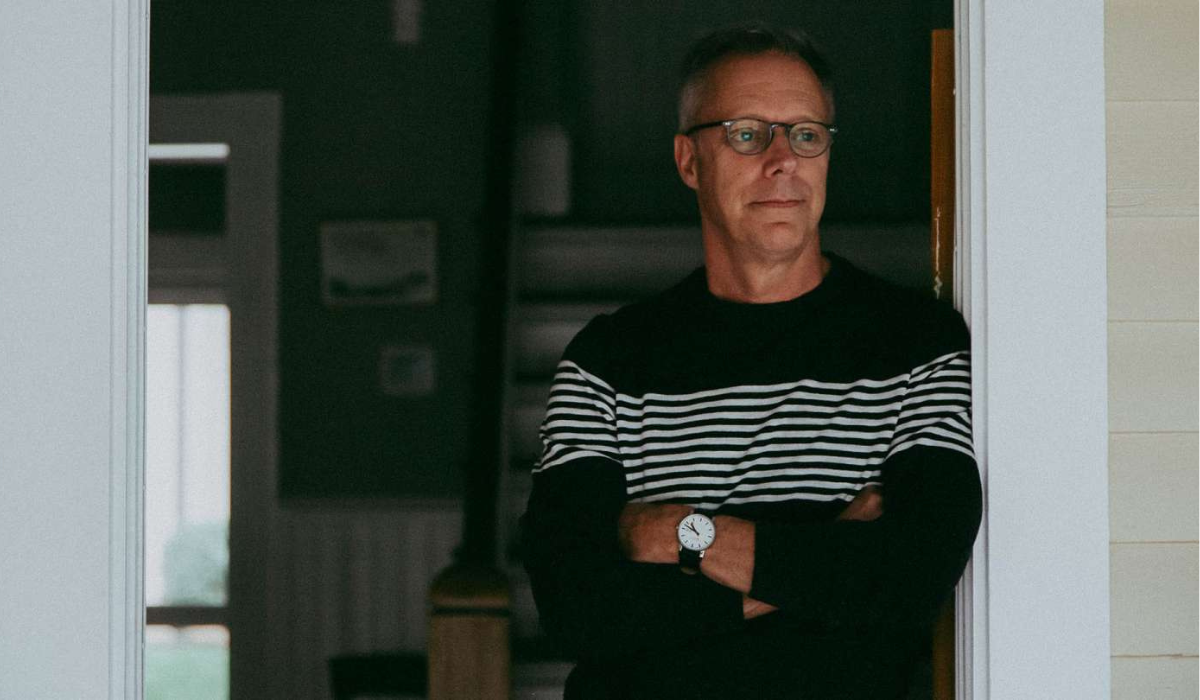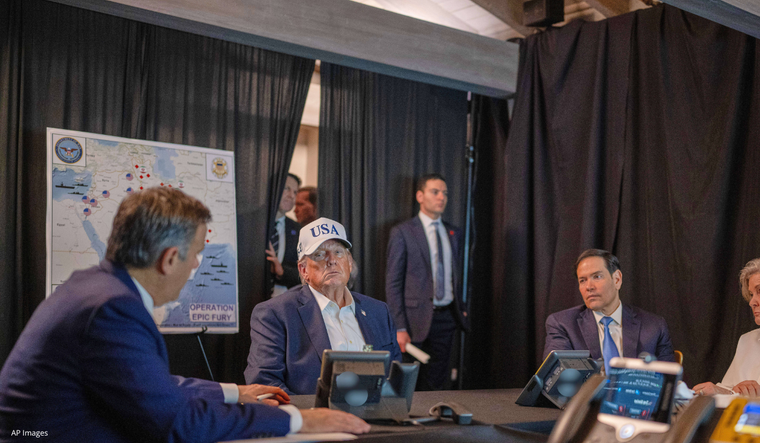Open Field Author Steven Petrow Says This is What Princess Kate’s Diagnosis Can Teach All of Us About “Cancer Etiquette”
Many of us who’ve had cancer, like myself, watched with horror this past spring as Catherine, Princess of Wales, was hounded by the media and content creators—fed by our appetites—to disclose what we feared might be her truth: a cancer diagnosis. On March 22, she made it official in an emotional video, telling the world:
“The surgery was successful. However, tests after the operation found cancer had been present.”
I wished, once again, that everybody could read the late Christopher Hitchen’s memoir, Mortality, which chronicles his 18-month bout with esophageal cancer. In that small but weighty book, he strongly suggests we all need a “handbook of cancer etiquette,” to avoid manners misdemeanors, like inadvertent gaffes—or worse, felony violations, like the invasion of our privacy or a forced outing of our illness.
In the weeks after I was diagnosed, I recall being told all kinds of nutty things, like “God is trying to get you to listen.” (“Hello God, it’s me, Steven. I’m confused.”) Another friend suggested the platitude, “Everything happens for a reason,” which seemed to place blame on me. People I knew, even those who were cancer suffers, claimed to know exactly what I was going through—despite facing different cancers and treatment regimens. Let me say, one size does not fit all when it comes to cancer.
Other people I knew suggested I try this treatment or that one, unasked and uninformed. At the same time, a health conscious co-worker warned me away from chemotherapy, claiming the treatment would kill me faster than the disease. Let me also say, not all chemotherapies are the same. (How about this: If I need you to do research for me, I’ll ask.)
Then, there was a colleague who—trying to connect—started to tell me a story of someone they knew who had cancer, a different one, only to realize mid-way, “Holy crap, they died.” (Really, really not helpful.) That episode brought me back to Hitchens and the story he told of a woman, a total stranger, who while asking him to sign a copy of his book, explained that her cousin had suffered from cancer, which had recurred “much worse than before.” Oh, she continued, oblivious, “It was agonizing” and then he died. She left Hitchens with these words, “Anyway, I just wanted you to know that I understand exactly what you are going through.” Uh huh.
I’d actually put these faux pas in the misdemeanor category, if only because their perpetrators bore no malice, no ill intent.
What Princess Kate has had to endure has been far worse, as conspiracy theories and hair-brained speculation ran amuck on the internet. Among them, according to a Wikipedia page titled, “Where Is Kate?” (and targeted for potential deletion), the princess is “hiding after a bad hairstyle, recovering from buttock augmentation surgery, or navigating strains in her marriage.” Meanwhile celebrities belittled her, with the whole affair being referred to as “KateGate” (somehow drawing a link to our Watergate affair, and the outright crimes of Richard Nixon).
Of all the rules to break, violating someone’s privacy is the most egregious. Long ago, Emily Post defined etiquette as “a code of behavior based on kindness, consideration, and unselfishness.” Nothing of the sort has been evidenced when it comes to Kate. I speak from experience when I say that to be diagnosed with cancer is to feel the utter lack of order or control in our lives. There’s really only one thing that we can own: our story, which means when and how to tell others.
(I can’t even imagine the sense of violation the princess must have experienced on hearing reports that her hospital medical records may have been breached.)
When I was diagnosed with cancer, at age 26, in 1984—just at the beginning of the HIV/AIDS epidemic—I, too, wanted to maintain my narrative by waiting until I finished the semester before going public. Alas, once some people learned I’d been in the hospital—and that I was a gay man—word began circulating that I had AIDS. Completely untrue. Still, my hand was forced before I’d fully accepted my condition or understood what the future might hold.
I’m reminded of the proverb, “curiosity killed the cat,” which, according to the Cambridge Dictionary, means “to warn someone not to ask too many questions about something.” When my sister was ill, friends asked questions—like, “What is Julie’s prognosis?”—which they thought was evidence of caring. My answer was often the same: “How will that information be useful to you?” My harsher response should have been: “There’s nothing you can do with that information, which is why it’s none of your business.” I tried to be kind but it wasn’t always easy (nor was I always successful).
I say all this knowing I’ve been inquisitive about other’s health conditions, too. And you may hear me mumble to myself, “Steven, it’s none of your business.” I’ve also written this essay without disclosing the type of cancer I had; perhaps, you’re curious. But, you see, what does it matter? Ditto for Kate’s cancer.
In the decades since I was first diagnosed, I’ve come to learn a good bit about what Hitchens called cancer etiquette, and I’ve had additional “help” from my mother and sister’s respective cancer bouts.
Rule No. 1: Listen. In general we’re deficient in this particular skill set these days, more so if we’re anxious. Whitney Read, a clinical social worker In New York who works with people with cancer, told me, “Holding space for someone to experience their emotions in your presence … is most helpful for those around you.” Understand that someone who is ill may want to talk one day, and withdraw the next. When in doubt, ask: “How can I help you today?” or “What’s on your mind?”
Rule No. 2: Don’t treat sick people differently than when they were well. When we’re diagnosed with cancer, we generally don’t lose our hearing (no need to SHOUT!); we don’t need to be talked to in hushed tones; and we don’t want to have our autonomy taken away.
Rule No. 3: Don’t let denial or fear get in the way of reaching out to someone who is seriously ill. Yes, it can be hard to know what to say—or do. Yes, you may fear saying the wrong thing. But to ignore the situation is to ignore your loved one. In a pinch, say, text or write, “I don’t know what to say but I’m thinking about you.” Or, “I love you.” And don’t underestimate the value of non-verbal communication (especially when at a loss for words). A good hug can make all the difference. So can bringing over a favorite meal and leaving it unless expressly invited to stay.
Rule No. 4: Don’t ask, “What can I do?” and just do. Offer to walk the dog, make a meal, take the kids for an afternoon. Or, with permission, set up a calendar on Meal Train or a fundraiser on Go Fund Me.
Cancer, as with other serious illnesses, is a time to connect with each other. As Kate said in the video, “Foreveryone facing this disease, in whatever form, please do not lose faith or hope. You are not alone.”
Soon after the princess’s disclosure, I posted a Snoopy cartoon on my Facebook feed; it read: “Be the reason someone feels welcome, seen, heard, valued, loved, and supported.” That is the greatest gift any of us can give or receive. Even better, it’s free and can be shared freely.

Steven Petrow is a contributing columnist with The Washington Post and the author of The Joy You Make to be published Maria Shriver’s imprint, The Open Field—You can read an excerpt from his book in our nonfiction book club, Get Lit He’s also written three books about modern manners and his TED Talk on civility has been viewed nearly two million times.
Please note that we may receive affiliate commissions from the sales of linked products.



